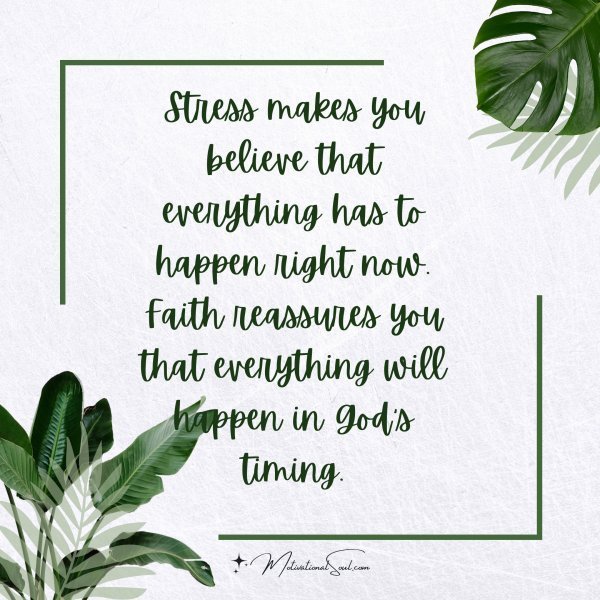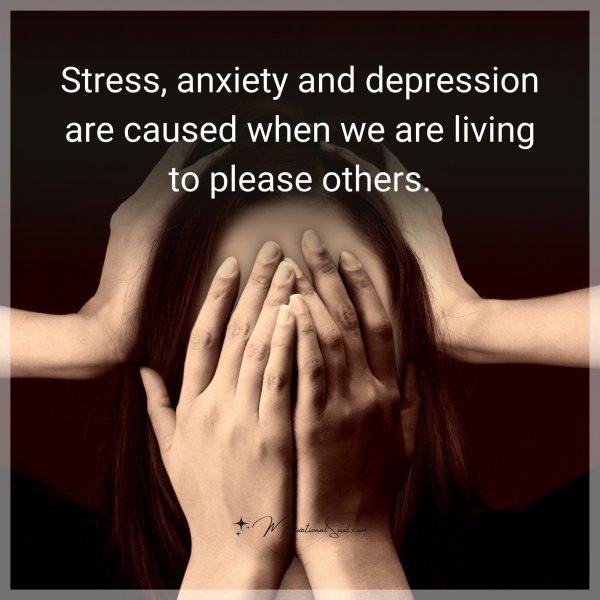It’s no secret that life is stressful.It’s easy to get bogged down by work, family, and social obligations leaving little time for personal care. But maintaining balance in your life is essential for your physical and mental health. In this blog post, we will discuss some tips to help you achieve balance and reduce stress. Follow these simple strategies, and you will be on your way to a more relaxed and balanced lifestyle!
Maintaining Balance Can be Messy
The overall balance in our lives is the key to success, but sometimes we get overloaded. In these cases, it’s necessary to pare down what we have so that we can focus on what’s important. However, if paring down isn’t possible right away, don’t worry! You can gradually work toward greater balance in the future.
For example, try to balance on one foot. Do you find yourself leaning in one direction and, in order not to fall, must right yourself by leaning in the opposite direction? The same is true for our lives. There will be times when we are pulled in different directions and we have to make adjustments in order to maintain balance.
It’s important to remember that balance is not a static state; it is constantly changing and requires effort to maintain. But the good news is, there are some things you can do to help find and maintain balance in your life.
Are You Living a Life That is in Balance?
- You’re always tired
- You have no time for yourself
- You’re skipping meals or eating unhealthy foods
- You’re not exercising
- You’re not spending time with loved ones
- You’re constantly stressed
If you find yourself experiencing any of these symptoms, it’s a good indication that your life is off-balance. But don’t worry, there are steps you can take to get back on track.
Tips for Maintaining Balance in Your Life
Take a Break
One of the most important things you can do for your mental and physical health is to take a break. With the demands of work, family, and social obligations, it can be difficult to find time for yourself. However, making even a small amount of time each day to relax and rejuvenate can make a big difference in your overall well-being.
Taking a break doesn’t have to mean going on vacation; simply setting aside 15-20 minutes each day to read, take a walk, or just sit quietly can refresh your mind and body. By taking some time each day to recharge, you’ll be better able to handle whatever life throws your way.
Just Say No
As anyone who has ever tried to juggle multiple tasks knows, it is all too easy to feel like you are constantly on the verge of burning out. To maintain a healthy balance in your life, it is important to learn to say no. It may seem counterintuitive, but by taking on less, you will actually have more time and energy to devote to the things that are truly important to you.
Of course, this does not mean that you should say no to every opportunity that comes your way. But it is important to be selective about the commitments you make and to set boundaries in order to protect your time and energy. When you learn to say no, you will find that you have more time for the things you love and that you are better able to meet your obligations without feeling overwhelmed. As a result, you will be happier and more balanced.
Disconnect to Reconnect
In our increasingly connected world, it is easy to feel like we are always available. Whether we are checking our email, scrolling through social media, or answering work calls, it seems like there is always something pulling our attention. While staying connected can be helpful in some ways, it can also lead to feelings of anxiety and overwhelm. To achieve balance in your life, it is important to disconnect from technology and spend time connecting with the people and things that are most important to you.
Turn off your phone, put away your laptop, and take some time to enjoy the company of loved ones, get lost in a good book, or simply be present at the moment. By disconnecting from technology, you will be able to focus on the things that truly matter and recharge your batteries.
Set Boundaries
One of the most important things you can do for your mental and emotional health is to set boundaries. Whether it’s setting limits on how much time you spend on work, or setting aside time each day for yourself, it’s important to make sure you aren’t overextending yourself. When you have healthy boundaries, you are more likely to maintain balance in your life. You’ll have more time and energy for the things that are truly important to you, and you’ll be less stressed overall. So if you feel like you’re constantly running on empty, take a step back and reassess your priorities. Then start setting some boundaries. You’ll be glad you did.
Ask for Help When Needed
It can be easy to feel like you have to do everything on your own, but one important tip for maintaining balance in your life is to ask for help when you need it. Whether it’s a friend, family member, or professional, there are people who can and want to help you.
Asking for help shows that you are willing to admit when you need assistance and that you are not afraid to reach out to others. It can also be a sign of strength, not weakness. Asking for help can lead to improved mental and physical health, better relationships, and more balanced life.
Manage Stress Levels
We all experience stress in our lives, but it’s important to manage our stress levels so that we can maintain a healthy balance. When we’re feeling overwhelmed or stressed, our body releases the hormone cortisol, which can lead to anxiety, insomnia, and weight gain. By managing our stress levels, we can improve our overall health and well-being.
Some effective steps include:
- Taking breaks throughout the day
- Putting away electronics an hour before bed
- Practicing meditation or deep breathing
- Exercising regularly
- Eating a healthy diet
Concentrate on What You’re Doing Now
One of the best pieces of advice for maintaining balance in your life is to concentrate on what you’re doing now. This doesn’t mean that you should never plan for the future or reflect on the past, but it does mean that you shouldn’t let those things dominate your present thoughts and actions. If you’re constantly worrying about what might happen or what could have been, you’ll miss out on the joy of living in the present moment. Instead, focus on what’s happening right now and make the most of it. Enjoy your friends, family, and hobbies, and savor the good moments as they happen. By living in the moment, you’ll be able to create a more balanced and enjoyable life.
Make Sensible Judgments
Too often we make choices in life without careful consideration of the consequences. We choose what we want at the moment without a thought about how it will impact our future. This can lead to a spiral of unhealthy choices that throws our lives off balance. If we want to maintain balance in our lives, it is essential that we learn to make sensible judgments. We need to take the time to weigh our options and choose the course of action that is most likely to lead to a positive outcome. When we make choices from a place of wisdom and understanding, we are more likely to create balance in our lives and achieve our goals.
Understand Your Thresholds
We all have different thresholds for the amount of stress, work, social interaction, and downtime that we can handle before feeling overwhelmed. For some of us, working long hours comes easily and we feel energized by being around people. Others of us prefer a more relaxed pace and need more time alone to recharge. It’s important to understand your own thresholds in order to maintain a healthy balance in your life. If you’re not sure where your thresholds lie, pay attention to how you feel after different activities.
Do you feel refreshed or exhausted after a night out with your friends? Do you prefer to work alone or as part of a team? Answering these questions can help you get a better sense of the types of activities that help you feel your best. Once you know your thresholds, you can make sure to include plenty of the things that make you feel good and limit the things that leave you feeling stressed or overwhelmed. By understanding and respecting your own needs, you can create a life that feels both balanced and fulfilling.
Set Goals
Having specific goals gives you something to work towards, and it can help to prevent you from feeling overwhelmed by the day-to-day tasks of life. When setting goals, it is important to be realistic and to set a variety of goals that cover different areas of your life. For example, you might set a goal to exercise three times per week, eat more vegetables, and spend more time with family and friends.
By having a mix of goals, you are more likely to stick with them and feel well-rounded and balanced. Additionally, it is important to review your goals regularly and adjust them as needed. Goals should be dynamic and adaptable to life’s ever-changing circumstances.

Finding a Balance for Everyone’s Individual Requirements
Teenagers:
During the teenage years, it is important to find a balance between schoolwork and free time. Too much focus on one area can lead to feelings of frustration and overwhelm. Instead, try to create a schedule that includes time for both academics and fun. Make sure to include plenty of breaks in your day so that you can relax and recharge. Additionally, it is important to spend time with both friends and family. Friends can provide support and understanding, while family can offer guidance and wisdom. By finding a balance between these different areas of your life, you can create a more balanced and enjoyable experience.
Adults:
As we get older, it becomes more important to find a balance between work and personal time. If we spend too much time working, we can miss out on important aspects of our lives. On the other hand, if we spend too much time focusing on our personal lives, we can fall behind at work. Try to find a schedule that allows you adequate time for both works and play. Additionally,
It’s no secret that the world is a stressful place.
With work, family, and social obligations, it can be difficult to find time for yourself. But maintaining balance in your life is essential for your physical and mental health. In this blog post, we will discuss some tips to help you achieve balance and reduce stress. Follow these simple strategies, and you will be on your way to a more relaxed and balanced lifestyle!
Older adults:
For older adults, it is important to find a balance between alone time and social interaction. Too much time spent alone can lead to feelings of loneliness and isolation, while too much time spent with others can be draining. Instead, try to find a happy medium that allows you adequate time for both solo activities and socializing. Additionally, it is important to find a balance between work and leisure. Too much work can lead to burnout, while too much leisure can leave you feeling unfulfilled. Try to find a schedule that allows you time for both so that you can stay productive and enjoy your free time.
Care for Your Physical Health
It is important to remember that your physical health plays a role in your overall sense of balance. When you are physically healthy, you have more energy and feel better mentally. Conversely, when you are not feeling well, it can be difficult to focus on anything else. Make sure to schedule regular check-ups with your doctor and take care of yourself when you are feeling under the weather. Additionally, exercise is a great way to reduce stress and improve your physical health. Try to find an activity that you enjoy and make time for it in your schedule. Even a simple walk around the block can do wonders for your mental state!
By following these simple tips, you can maintain balance in your life and reduce stress. Remember to take things one day at a time and focus on your goals. With a little effort, you can create a more balanced and enjoyable life for yourself!

